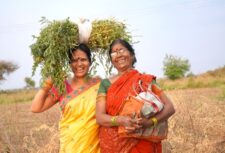Disclaimer: This article is more than 10 years old, and may not include the most up-to-date information or statistics. Please verify information with more recent sources as needed, and if you have any questions contact our Press Office.
19 December 2013
New report: ‘Criminal or Victim. Trafficking for forced criminal exploitation in Europe. UK chapter’
Victims of trafficking for forced criminality are commonly prosecuted rather than protected as scale of the phenomenon remains underestimated says new research led by Anti-Slavery International.
Download PDF: Criminal or victim – UK Chapter (197.65KB)
People trafficked into the UK for forced criminality are widely prosecuted for crimes they were compelled to commit whilst their exploiters enjoy impunity, says new research by the RACE in Europe project.
The research analyses trafficking for exploitation in criminal activities in the UK such as cannabis cultivation, ATM theft, pickpocketing, bag-snatching, counterfeit DVD selling, benefit fraud and forced sham marriage, as well as being forced to beg.
The UK part of the research, part of the Europe-wide report entitled ‘Criminal or victim. Trafficking for forced criminal exploitation in Europe’, uncovers the underestimated scale of these crimes, especially in the case of trafficking for forced labour in cannabis cultivation, where the official numbers are suggested to be only ‘a tip of the iceberg’.
According to the 2012 assessment by the UK Human Trafficking Centre only 69 cases of trafficking for the purpose of forced labour in cannabis cultivation were identified, of which 96% were from Vietnam.
However, the number of Vietnamese people trafficked into forced labour is likely to be much higher. Information obtained from over 50% of the police forces in England and Wales (23 out of 43) through a freedom of information request covering the period from January 2011 to April 2013 revealed that 1,405 individuals have been arrested for offences relating to the cultivation of cannabis, 63% of whom were Vietnamese nationals.
Research into media reports over a similar period identified 142 cases of Vietnamese nationals who were convicted for cannabis cultivation, despite significant indicators of trafficking present, suggesting that they were in fact victims of crime themselves, forced to undertake criminal activity.
Trafficking for petty crimes such bag snatching, ATM theft, pickpocketing and forced begging, particularly of children from central and Eastern Europe, was also highlighted in the research as an underestimated crime, with Romania being the main source country.
The above mentioned FOI request information showed that 53% of the 1,944 foreign children arrested for theft offences in the UK came from Romania (data from 25 out 43 UK police forces). However, only 52 children were found in care of local authorities (in 19 local authorities out of 152), which means it is very likely many of them were prosecuted.
Children identified as potentially trafficked are not appropriately safeguarded by authorities, commonly go missing from care and end up back with their traffickers. Most are never found. The majority of Vietnamese trafficked children recovered to date had been found in cannabis factories.
Klara Skrivankova, Trafficking Programme Co-ordinator at Anti-Slavery International said:
‘The research affirms that currently in the UK a significant number of trafficked people are being punished and prosecuted for the crimes they have been forced to commit whilst their traffickers are enjoying impunity.
‘It is therefore sad to learn that provisions for non-punishment of the trafficking victims were left out of the draft of the Modern Slavery Bill. The Government has a lot to do to ensure that the slavery victims are guaranteed their right to proper identification, assistance and access to compensation.’
Chloe Setter, Head of Advocacy, Policy & Campaigns at the children’s charity ECPAT UK, a main partner in the project, said:
“This research sadly demonstrates the ongoing plight of children who are trafficked to commit crimes in the UK but who are too often treated as criminals or immigrants instead of what they actually are – hugely vulnerable children who are exploited by those seeking to profit from their abuse.
“Such shocking statistics should act as a wake-up call for relevant agencies and the Government. Trafficked children need much better protection. A system of legal guardianship would help to ensure those forced into criminality don’t face further risk or prison but safety, support and the chance to rebuild their lives.”
Note to editors:
For more m edia information or to arrange interviews, contact Anti-Slavery International Press Officer Jakub Sobik at j.sobik@antislavery.org or on 07912 145610.
‘RACE in Europe’ is a project to improve knowledge about the nature and scale of trafficking of children and adults for forced criminal exploitation and forced begging across Europe. The report analysing exploitation in criminal activities across the continent is scheduled to be released early next year.
Race in Europe project partners include:
Anti-Slavery International
ECPAT UK
Migrant Rights Centre Ireland
Specialist Policing Consultancy Ltd., UK
La Strada Czech Republic
Multicultural Centre Prague
Police Academy of the Netherlands
Vietnamese Mental Health Services, UK
More information can be found at www.raceineurope.org






